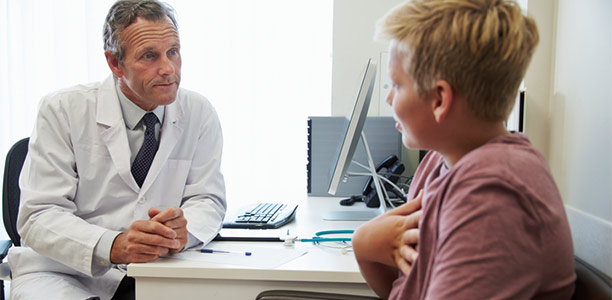New research led by medical students from the University of Tasmania’s Rural Clinical School has revealed what young people really want when visiting their general practitioner.
The medical students surveyed 155 teenagers aged 16-18 from a rural Tasmanian high school, finding young people valued non-judgemental GPs who listened, avoided medical jargon, made assurances about confidentiality and treated them like adults.
Participants of the study also wanted to be asked questions about mental wellbeing, sexual health and substance use, even if visiting their doctor for different reasons, because they felt uncomfortable broaching sensitive topics themselves.
Dr Jane Cooper, Senior Lecturer at the Rural Clinical School and local GP, proposed the study based on her experience working in youth health, and said the results also showed 95% of teenagers considered a GP to be their primary healthcare provider.
“Young people place GPs high on their ‘go to’ list for help in addressing health problems, however their personal perceptions of general practice are not very well understood in the local GP community,” Dr Cooper said.
“Through an effective project designed and delivered by Rural Clinical School medical students, we now have powerful findings to engage GPs in youth-friendly practice.”
The research also uncovered barriers preventing young people from accessing healthcare, with 64% “hoping the problem would go away” while other deterrents included difficulty making an appointment at a convenient time and feeling uncomfortable about seeing a GP.
Teenagers also rated important qualities of GP clinics, with almost all study participants wanting reception staff to recommend youth-friendly doctors who they could visit during after-school hours.
Rural Clinical School researcher Colleen Cheek said staff had mentored the medical students throughout the project, and commended the outcome of their work.
“The medical students worked collaboratively with organisations to build an anonymised iPad questionnaire for the study participants which was first piloted to ensure it was appropriate for young people,” Ms Cheek said.
“The research went through a rigorous ethics assessment to ensure that all young people involved could feel confident that their participation could be honest and anonymous.”
Dr Isabel Di Tommaso was one of the medical students involved in the research and has since graduated to take up an internship at the North-West Regional Hospital.
“I was interested in finding out what young people’s attitudes were towards doctors and general practice, and the results of this project may help us to now deliver better healthcare in a way that suits their needs,” Dr Di Tommaso said.
The study was conducted between 2015-2016, with the results recently published nationally in the paper Young people have their say: What makes a youth-friendly general practice.
The research was co-authored by Rural Clinical School students Laura Turner, Leah Spencer, Jack Strugnell, Julian Chang and Isabel Di Tommaso (all of whom have since graduated to become doctors), alongside staff members Dr Jane Cooper, Colleen Cheek and Dr Penny Allen.
A sixth student, Magella Tate, who passed away in September 2015, was also acknowledged in the paper for her important contribution in co-authoring the research.
Young people have their say: What makes a youth-friendly general practice can be accessed online here.
(Source: University of Tasmania)










